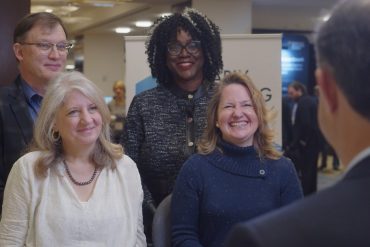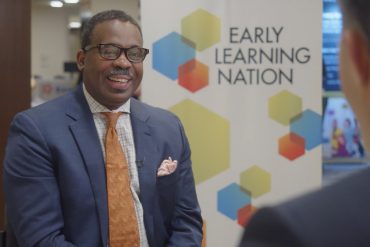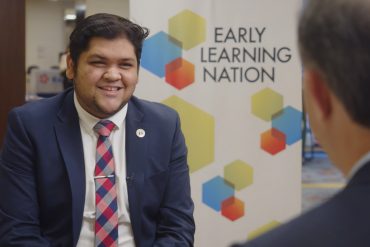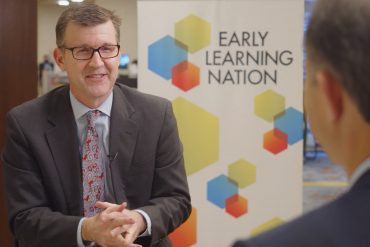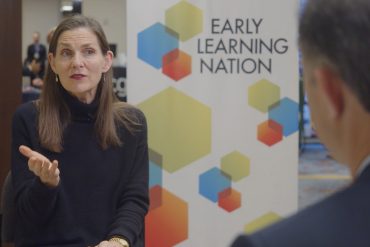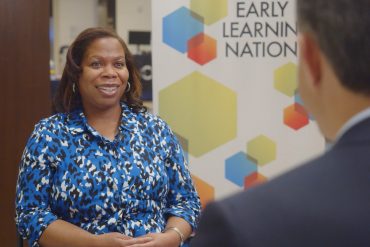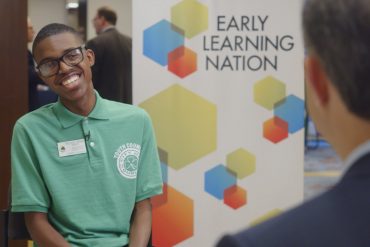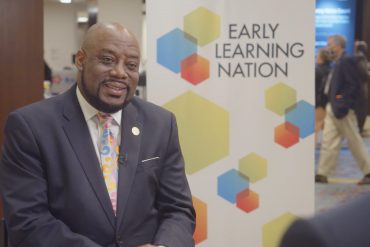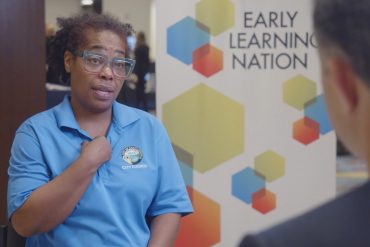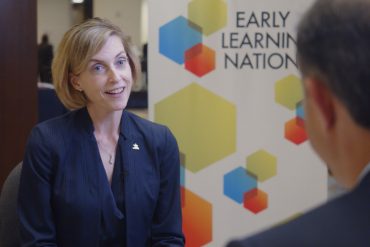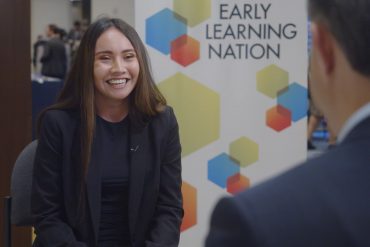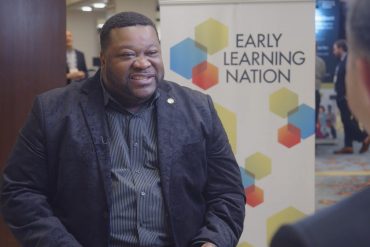By creating a community-wide coalition across Austin city and Travis County in 2011— encompassing the public, private and non-profit sectors—Austin/Travis County Success by 6 provides support for families from birth to five. With their new strategic plan—and 38 babies being born every day—the group is trying to improve school readiness overall.
[molongui_author_box layout=slim box_background=#e6e6e6 profile_layout=layout-3 show_headline=no]
Senior Executive and Director of NLC’s Institute for Youth, Education and Families, Dr. Robert Blaine, says the institute works on many levels: specific programs, cities themselves and the wider population, all to increase outcomes and build more opportunity for children and families. Dr. Blaine’s role also carries an additional benefit: working with the inspiring youth leaders. It’s a blend that requires the skills of an orchestra conductor... and it turns out, Dr. Blaine has those, too.
A key part of youth advocacy is making sure the adults in the room are listening and taking action. Avinash Verma explains how youths connect with their communities differently than adults, and what that means in terms of needed resources and support. Avinash also explains how his community engagement has helped fuel is interest in aviation, including a work-learning program at the airport and with NASA.
As President & CEO of the Smarter Learning Group, Ron Fairchild works directly with communities nationwide. He works with foundations, nonprofits and school districts across the country, all to expand educational opportunities for low-income kids and families. As Fairchild describes, getting to continual strong results takes work. But the ability to get there—and the responsibility to try to improve the next generation of outcomes—exists in every community.
As part of New America’s Better Life Lab, Brigid Schulte helped drive a landmark report that exposed what’s really happening in America’s child care system – namely, it’s not a system. Instead, “it's a patchwork, it's broken, and it's not working well for anyone.” Schulte calls for us to “begin thinking about early care and education the same way we do about K-12.”
As American cities rebuild after the pandemic, much of the focus is on infrastructure. For Dr. Tonja Rucker, Director of Early Childhood Success at NLC’s Institute for Youth, Education and Families, that means not only physical needs like roads and bridges, but also the family structure, starting with its youngest members. As Dr. Rucker notes: “If the youngest residents are healthy and doing well, then the rest of things kind of fall into place and families get to be able to meet their needs.”
As the City of Dublin (GA) Youth Council Mayor and a NLC Youth Leader, Darrius Knight is working to help adults and youths better understand each other. The key is communication. He also advocates for prison reform.
Covid arrived and, suddenly, every parent became a teacher. Savannah (GA) Mayor Van Johnson sees the positive: the ability for all of us to better support teachers. Mayor Johnson also sees the need to make up for lost time, and the importance of ensuring that early learning occurs everywhere, from classrooms to churches. That’s why his message to parents is straightforward: childhood learning is “a lifetime investment. It's not a sprint, it's a marathon. It's a four-quarter game.”
Demetrus Coonrod’s path to Chattanooga’s City Council had obstacles, including time in prison. But her personal journal also serves as a guiding path for others, showing the power of resilience, belief in oneself and education.
As part of what’s called “cradle to career,” Arlington (TX), like many communities, is working to ensure its approach to learning leads to a well-educated workforce. As Mayor Pro Tem Victoria Farrar-Myers explains, that discipline starts with early learning, as young as zero to three, and the Arlington Tomorrow Foundation.
As an NLC Youth Representative and a member of the Brighton (CO) Youth Commission, Giana Rocha partners with adult leaders to help youth access the tools they need to be involved and make change. One area for impact: Helping peers with mental health issues know that support is always there.
Willie Lightfoot is a Rochester (NY) City Councilmember. He’s also a longtime barber. And it’s in both roles that he has made an impact on early learning. As Lightfoot explains, the time when a child waits for a haircut makes for an outstanding opportunity to read. It’s just one of the lessons one can take from Lightfoot’s chair, including his common reminder to be positive.


